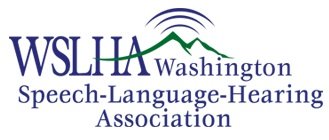Date: July 22nd, 2020
Time: 4:30 pm - 6:00 pm
Location: Online via Zoom
Presenter: Kaylee Paulsgrove, MS, CCC-SLP, Sara Kinter, MA, CCC-SLP & Sylvie Render, MS CCC-SLP
Abstract:
Children with cleft palate and other craniofacial conditions are at risk for a variety of communication disorders including language delays, expressive speech disorders, and/or structural deficits. Longitudinal care from a multi-disciplinary team is recommended to achieve optimal developmental outcomes. Speech-language pathologists play a critical role on the cleft/craniofacial team and are responsible for ongoing evaluation and treatment of cleft-related communication disorders.
Children with cleft palate +/- cleft lip often present with complex speech disorders that require careful differential diagnosis. Specifically, both the oro-facial structure and functional use of the speech mechanism must be taken into consideration during the evaluation and treatment process. Many times, a Craniofacial team SLP evaluates and refers a child for therapy, but the therapy plan is carried out by an SLP in the community where the child resides. To help the child achieve their communicative potential, all SLPs on the child’s care team should collaborate.
This presentation will provide an overview of cleft-related speech considerations including timeline of care with an emphasis on multidisciplinary team care. Velopharyngeal dysfunction (VPD) including velopharyngeal insufficiency (VPI), velopharyngeal mislearning, and velopharyngeal incompetence will be introduced. Management of VPD will be explored in detail. Speech therapy techniques to treat velopharyngeal mislearning will be modeled. Specific audio and video examples, including nasopharyngoscopy and multiview speech fluoroscopy, will be included to illustrate key points and facilitate discussion. The process of collaborating with the local craniofacial team will be discussed.
Learning Objectives
Participants will be able to:
Define velopharyngeal dysfunction including VPI, velopharyngeal mislearning, and velopharyngeal incompetence
Discuss rationale for behavioral versus physical management of VPD
List 3 therapy techniques to address velopharyngeal mislearning related errors.
Kaylee Paulsgrove, MS, CCC-SLP is a speech-language pathologist at Seattle Children's Hospital who specializes in velopharyngeal dysfunction (VPD) and cleft/craniofacial related speech disorders. She completes evaluations and treatment through Craniofacial Clinic, The 22q Program, Velopharyngeal Dysfunction Clinic, and Obturator Clinic. She received her Master's degree in Medical Speech-Language Pathology from The University of Washington and her Bachelor’s degree from Oklahoma State University. Kaylee is an active member of ASHA's SIG 5 and American Cleft Palate-Craniofacial Association. Additionally, she serves on the Washington Speech Language Hearing Association Board as the Clinical SLP.
Disclosures: Presenter is employed by Seattle Children’s Hospital and specializes in velopharyngeal dysfunction and other cleft-related communication disorders. Non Financial: She is a member of ASHA’s SIG 5 and the American Cleft Palate-Craniofacial Association and serves on various committees as a volunteer. Kaylee Paulsgrove serves on the WSLHA Board as the Clinical SLP.
Sara Kinter, MA, CCC-SLP has specialized in the diagnosis and management of children with velopharyngeal dysfunction as well as differential diagnosis of structural versus functional complex speech disorders for over 15 years. She is the lead SLP with the Craniofacial Center/Velopharyngeal Dysfunction Clinic at Seattle Children’s Hospital. She earned her Master’s degree in speech-language pathology from Northwestern University. Ms. Kinter is also a doctoral candidate in epidemiology at the University of Washington with anticipated graduation in fall 2020. Her research interests include the application of epidemiologic methods to the study of resonance and speech outcomes in children with craniofacial conditions. She is an active member of ASHA’s SIG5 and the American Cleft Palate-Craniofacial Association.
Disclosures: Presenter is employed by Seattle Children’s Hospital and specializes in velopharyngeal dysfunction and other cleft-related communication disorders. Non Financial: She is a member of ASHA’s SIG 5 and the American Cleft Palate-Craniofacial Association and serves on various committees as a volunteer.
Sylvie Render, MS CCC-SLP is a speech-language pathologist at Seattle Children’s Hospital. She earned her Master’s degree at Vanderbilt University and completed her Clinical Fellowship at the University of Iowa Hospitals and Clinics in acute care speech pathology and as a member of the cleft palate and craniofacial team. Ms. Render specializes in the perceptual and instrumental evaluation of velopharyngeal dysfunction as a member of the Seattle Children’s Hospital Craniofacial Center, Velopharyngeal Dysfunction Clinic, and 22q program.
Disclosures: Presenter is employed by Seattle Children’s Hospital and specializes in velopharyngeal dysfunction and other cleft-related communication disorders. Non-Financial: She is a member of ASHA’s SIG 5 and the American Cleft Palate-Craniofacial Association and serves on various committees as a volunteer
Would you like credit for this course?
This course is offered for 0.15 ASHA CEUs, (Intermediate level, Professional area).
OSPI Clock Hours of 1.5 hours will be offered
WSLHA charges a processing fee of $5.00 for ASHA CEUs ($7.00 non-members) and $5.00 for clock hours payable prior to the workshop.


